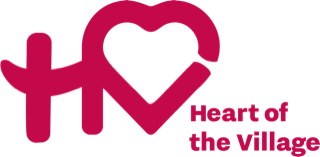Ayana Morgan-Woodard
by Sebastian Ghosh
The fact that, when we asked about the best part about quarantine, Ayana responded “planning” speaks volumes about her as a person. Despite juggling a series of projects and obstacles during quarantine, Ayana has been able to find time to plan—and figure out what she can do to make a difference.
Ayana Morgan-Woodard, a recent honors graduate of Tuskegee University in Alabama, just moved back to Marin City and is hungry to create change. Growing up in Marin City, Ayana went to Marin Catholic, and after graduating university she enrolled in the Servant Leader Internship program at the Hannah Freedom School. In this program, she and others get trained to become teachers in an environment that emphasizes personal growth and volunteer opportunities. Those who have the opportunity to be part of this special program are given the space, and skills, to give back and interact with kids in their community.
Being a recent graduate, and coming back from college, Ayana sees Marin City from a new perspective. While it is great being back, she says that Marin City feels different and people see her differently. Through her hard work, Ayana has achieved success with her education, and, empowered by this experience, she wants to teach what she has learned about this process to young people in her community. Ayana wants to serve as both a resource and testimony that different paths exist for young people in Marin City. She believes that one of their biggest challenges is figuring out what opportunities are out there and how to access them. By educating the younger generation, Ayana aims to teach kids what is possible, giving them confidence and self-esteem to go out in their community and into the world.
Ayana has learned that it can be hard changing people’s mindsets regarding what they are used to seeing in society. Based on these preconceived views, many people in this community do not always know what resources are available, or know how to pursue the same opportunities. While Ayana has set goals for what she wants to achieve, even she finds it difficult figuring out the best way to make these goals a reality. But Ayana remains hopeful, and resources like the Hannah Freedom School help to reinforce her confidence. Most importantly, having her family and friends behind her motivates her to keep pushing for change.
On the flip side, Ayana also wants to address negative views that people outside the community have about Marin City. She feels that most people who don’t know the town well fail to recognize and appreciate the bright minds and powerful people present in the community. While she appreciates the attention she has received, she believes others also deserve that recognition, but don’t often receive it, “People pat me on the back and say how well I’ve done, but guess what? There are more of us that have done it and more that can do it—they just haven’t been given the opportunity to do so.” By advocating for and placing more people from this community in the limelight, Ayana hopes to help change the Marin City narrative.
Even at this early stage of her work, Ayana has come to appreciate what makes it so rewarding: She strongly believes that the children of her community are the future, and if we can influence them in a positive way it will help bring about change, “If they are listening and learning from me, I am doing something right.” She finds that working with kids can be a nice break from dealing with the adults of the world.
As well as reuniting her community, Ayana hopes to raise Marin City to the heights that many know it is capable of reaching. As we progress through this time of immense change and reform, Ayana welcomes these challenges and wants to play a significant role in improving the world around her. Serving as a mentor and resource for questions and ideas in the community, her goal is to make her experiences more of a normality in the community. While she is not one hundred percent certain how she will take steps to achieve this goal, Ayana is certain that she wants to start with helping the next generation. Ultimately, the goals that Ayana is striving for are not simple, they will take a lot of effort and hard work to accomplish. As the saying goes, “It is a marathon not a sprint.”
Ayana Morgan-Woodard is currently building a website with community help and resources. In the meantime, she encourages people to reach out. email Ayana Morgan-Woodard













